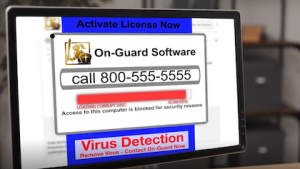FBI Warns of Growing Impact of Tech Support and Government Impersonation Scams as Impact on South Carolina Seniors Increases
December 16, 2024The Federal Bureau of Investigation (FBI) has issued a public warning regarding an increase in advanced tech support scams specifically targeting seniors across South Carolina. The scams involve sophisticated schemes that deceive elderly victims into liquidating assets, including cash and gold bars, under the pretense of resolving nonexistent financial and technological issues.
The FBI reports that scammers contact seniors, often posing as legitimate tech support representatives, and manipulate them into taking drastic actions to “protect” their accounts or devices. These scams have evolved to involve multiple layers of deception, including impersonation of government officials, fake documents, and the use of couriers to collect valuables.
Growing Impact on South Carolina Seniors
According to data from the FBI’s Internet Crime Complaint Center (IC3), South Carolinians aged 60 and older reported losing more than $9 million to tech support scams between January and November. While the concept of tech support scams is not new, the FBI emphasizes that the recent versions are far more complex and harder to detect.
How the Scam Works
The FBI describes a typical progression of this scam:
- Initial Contact: Scammers pose as tech support agents from legitimate companies, contacting victims through pop-up messages, texts, emails, or phone calls, claiming there is an issue with their computer or device.
- Fake Solutions: Victims are instructed to call a provided number, where the scammers assure them that the issue can be resolved. During this call, scammers claim the victim’s financial accounts have been hacked and must be moved for “safekeeping.”
- Government Impersonation: Scammers instruct victims to call the number on the back of their bank card. However, these calls are rerouted to accomplices posing as bank representatives or government officials, further legitimizing the scheme.
- Asset Liquidation: Victims are persuaded to liquidate their financial assets into cash or purchase gold bars and other precious metals. Scammers may send couriers to the victim’s home or another location to pick up the items, often providing passcodes to verify the transaction.
- Fake Documentation: To add a layer of credibility, scammers may send forged documents that appear to be from U.S. government agencies.
Characteristics to Watch For:
- Scammers providing passcodes for courier pickups.
- Fake government letters and documents to legitimize the scam.
- Long, drawn-out schemes lasting weeks or even months.
Tips to Protect Yourself
The FBI offers the following advice to protect against these scams:
- Do not click on unsolicited popups, text message links, or email attachments.
- Do not contact unknown numbers provided in suspicious communications.
- Do not authorize unknown individuals to access your computer remotely.
- Do not download software at someone’s request unless you verify their legitimacy.
- Avoid meeting anyone to deliver cash, gold, or other valuables.
- Remember, U.S. government agencies will never ask you to wire money, send cryptocurrency, purchase precious metals, or gift cards to resolve an issue.
- Slow down and verify claims. Scammers rely on creating urgency to pressure victims into quick decisions.
- If you receive any concerning information about your financial accounts, visit your bank or financial institution in person.
Reporting Scams
If you suspect you have been targeted or victimized by this or any scam, immediately cease communication with the scammers and contact local law enforcement. The FBI also encourages victims to file a complaint with the Internet Crime Complaint Center (IC3) at www.ic3.gov.
By staying vigilant and informed, seniors and their families can help protect against these advanced scams, which continue to impact communities across South Carolina and nationwide.



















